Annually, Vertiv experts from around the world weigh in on trends that we see as being most impactful to the data center industry in the coming year. In 2022, we see the industry increasingly adopting sustainability and climate-conscious strategies, while also positioning to tackle the challenges of speed to market, cost containment, and latency with a focus on artificial intelligence (AI), edge, and hybrid data centers, along with increased interest in integration.
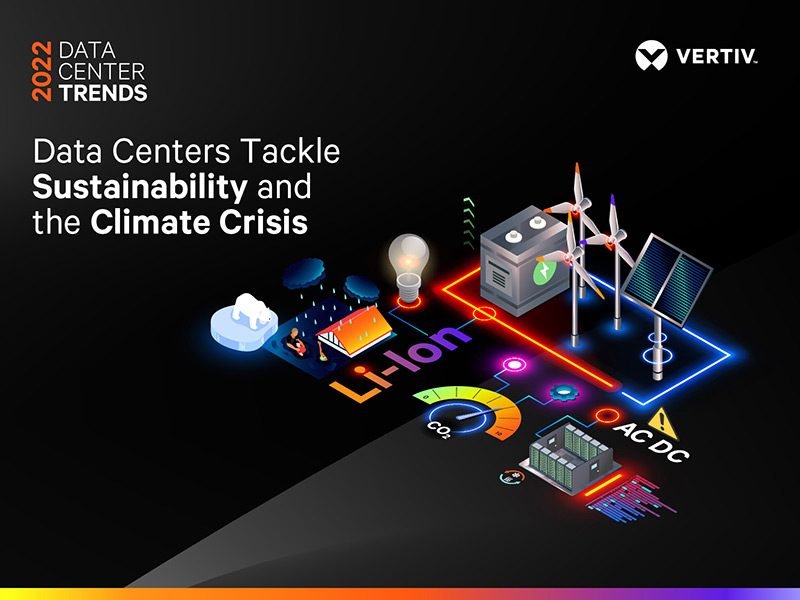
Data Centers Tackle Sustainability and the Climate Crisis
The data center industry has taken steps toward more climate-friendly practices in recent years, but operators will join the climate effort more purposefully in 2022. On the operational front, Vertiv experts predict some organizations will embrace sustainable energy strategies that utilize a digital solution that matches energy use with 100% renewable energy and ultimately operates on 24/7 sustainable energy. Such hybrid distributed energy systems can provide both AC and DC power, which adds options to improve efficiencies and eventually allows data centers to operate carbon-free. Fuel cells, renewable assets, and long-duration energy storage systems, including battery energy storage systems (BESS) and lithium-ion batteries, all will play a vital role in providing sustainable, resilient, and reliable outcomes. Thermal systems that use zero water are in demand, and we will see refrigerants with high global warming potential (GWP) phased down in favor of low-GWP refrigerants.
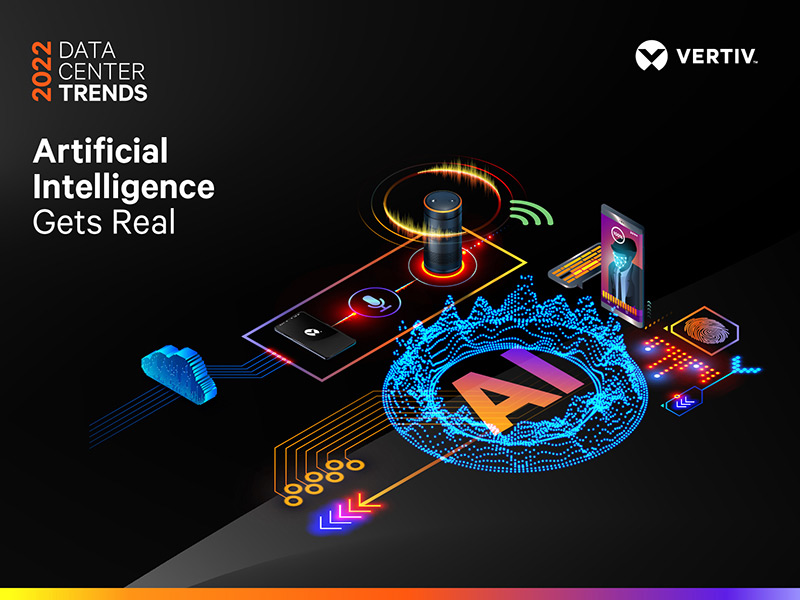
Artificial Intelligence Gets Real
As today’s networks get more complex and more distributed and the augmented and virtual reality demands of the metaverse become more prominent, the need for real-time computing and decision-making becomes more critical. This real-time need is sensitive to latencies, and under the increasingly common hybrid model of enterprise, public and private clouds, colocation, and edge, full-time manual management is impractical, if not impossible. AI and machine learning will be critical to optimizing the performance of these networks. The availability of AI hardware from established vendors, cloud options for the same, a simplified toolchain, and an educational focus on data science has put AI in play for even smaller companies. It all adds up to accelerated AI adoption in 2022.
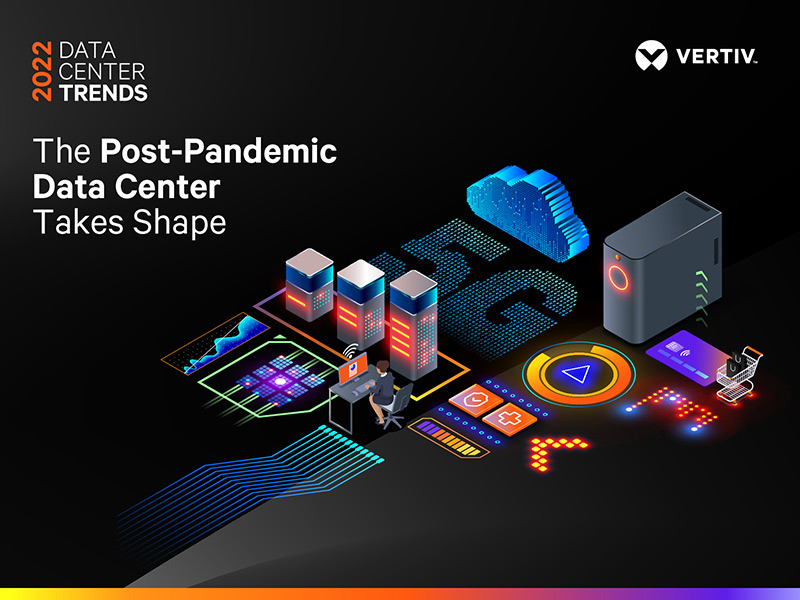
The Post-Pandemic Data Center Takes Shape
Some 2.9 gigawatts worth of new data center construction is under way globally – up from 1.6 gigawatts in 2020 (Cushman & Wakefield). Those data centers will be the first built specifically to meet the needs of a post-COVID world. More activity will be focused at the edge, where VMware projects a dramatic shift in workload distribution — from 5% currently to 30% over the next five years. Availability will remain the top priority, even at the edge, but lower latency is a rising need to support healthy buildings, smart cities, distributed energy resources, and 5G. 2022 will see increased investment in the edge to support this new normal (remote work, increased reliance on e-commerce and telehealth, video streaming) and the continuing rollout of 5G.
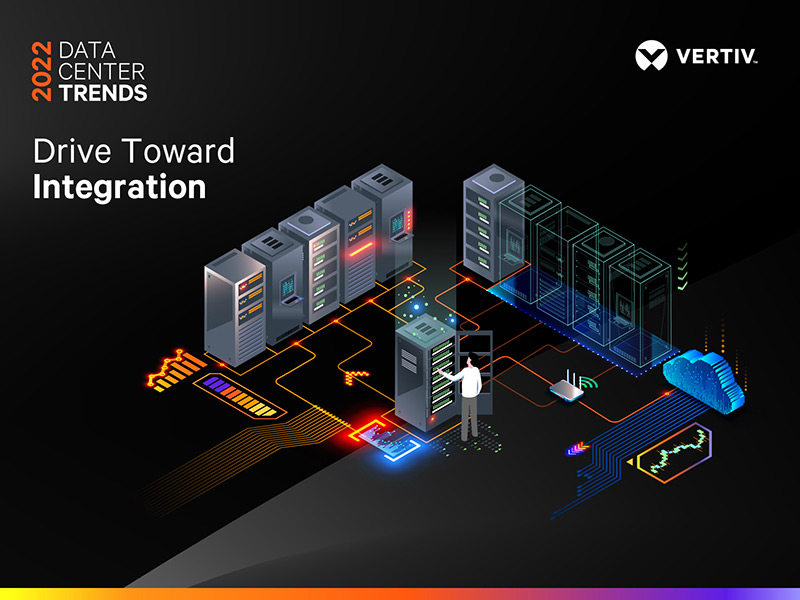
Drive Toward Integration
Various data center equipment providers have been embracing integrated systems that allow for modular capacity additions for years, with integrated racks and rows among today’s most popular data center offerings. In 2022, we’ll see the next step in integration as data centers work with providers to better integrate larger systems — all components of the power infrastructure, for example — and deliver seamless interoperability. The benefits of integration as a concept are well known — reduced construction and deployment costs, and flexible capacity management — and applying the same approach across larger systems delivers speed. Rack-based power solutions are early accelerators of integration momentum.
Featured Article
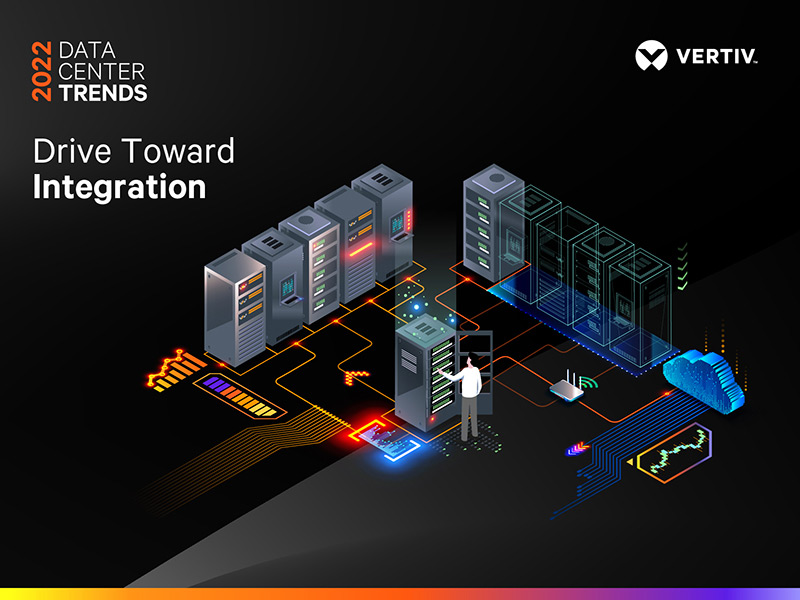
Sustainability and Climate Actions Dominate 2022 Data Center Trends to Watch
Vertiv (NYSE: VRT), a global provider of critical digital infrastructure and continuity solutions, today released its annual list of the key data center trends to watch in 2022, headlined by a dramatic acceleration in actions to address sustainability and navigate the climate crisis.



